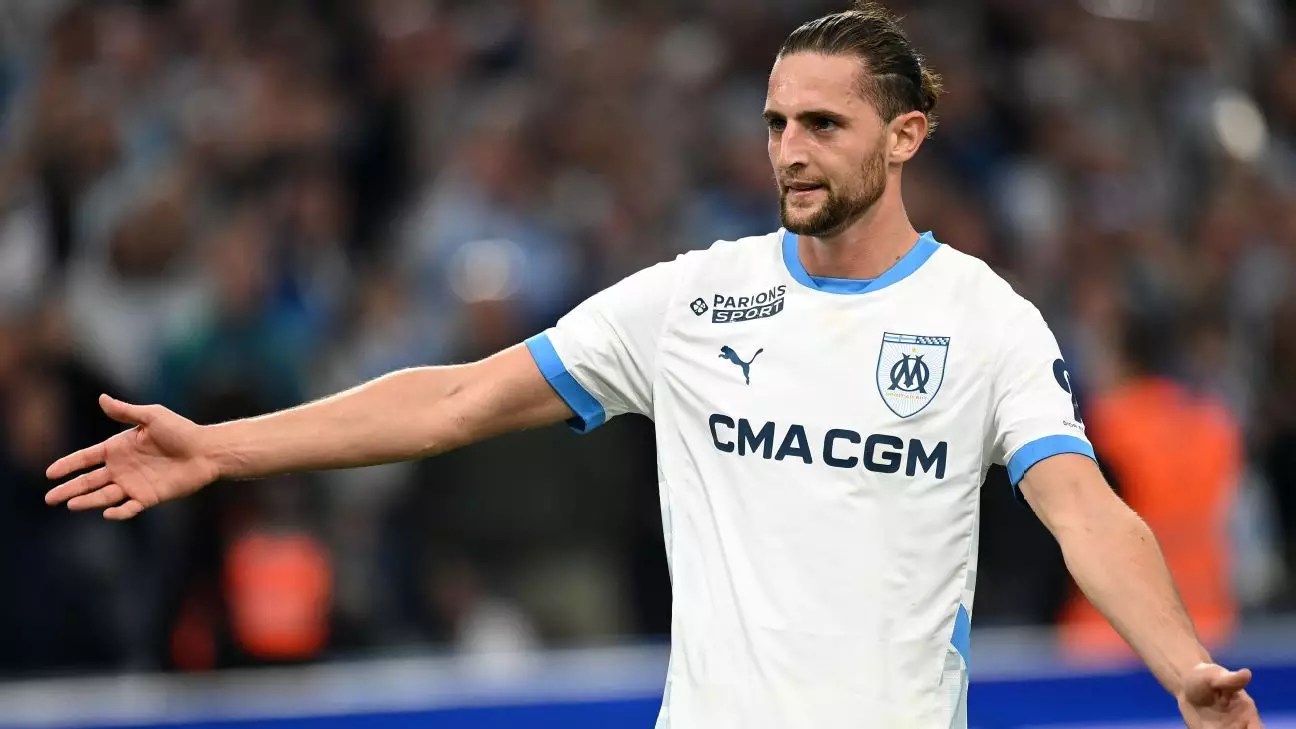In the often glamorous world of professional football, the integrity of the locker room is sacrosanct—an environment where teamwork, discipline, and mutual respect are expected to prevail. Yet, recent events at Olympique de Marseille have shattered this illusion, revealing that even the most disciplined clubs can succumb to chaos behind closed doors. The violent altercation between Adrien Rabiot and Jonathan Rowe signifies more than a mere clash of personalities; it exposes underlying issues that threaten the very fabric of team cohesion.
Football clubs arguably serve as microcosms of society, where conflicts are inevitable but usually kept in check by professionalism and leadership. However, Marseille’s explosive incident indicates a breakdown of these social norms, highlighting how unchecked emotions can escalate into damaging altercations. The club’s decision to publicly list both players for transfer underscores the seriousness of the matter and exposes the fragile nature of trust within the squad. It raises critical questions: How does a team recover from such a public display of discord? And what does this incident say about the state of discipline and maturity within the team?
The Root Causes: Unraveling Tensions
Reports suggest that the conflict followed a high-stakes loss against Stade Rennais, during which Marseille played with a numerical disadvantage for an extended period. The frustration stemming from the game’s intense environment might have ignited underlying tensions. Rabiot’s frustration appears to have centered on Rowe’s perceived lack of commitment, a subjective assessment that can ignite conflicts if not managed delicately. Conversely, Rowe’s response—insults and an aggressive confrontation—reflects a failure in emotional regulation and professionalism.
This scene is emblematic of a broader issue in modern football: the pressure to perform coupled with personal frustrations can turn combustible if not tempered by strong leadership. The fact that this incident spiraled into physical violence indicates a failure of the club’s internal mechanisms to mediate and address conflicts constructively. It also raises concerns about the players’ emotional intelligence, maturity, and their capacity to handle adversity without resorting to violence.
Consequences and the Fragile Future
The aftermath of such a volatile incident reverberates far beyond the immediate fallout. Adrien Rabiot, a seasoned international with lucrative career prospects, finds himself at a crossroads. His potential transfers to clubs like Juventus or Inter Milan could be jeopardized by this scandal, illustrating how team conflicts can influence individual careers. Similarly, Rowe’s options in England with Sunderland or Leeds United might also be impacted.
For Marseille, this eruption threatens to destabilize a squad already facing competitive pressures. It serves as a stark reminder that discipline and unity are not just organizational policies but vital ingredients in maintaining a team’s competitive edge and reputation. As the club prepares to navigate the fallout, questions linger about the leadership’s effectiveness in managing conflicts and fostering a culture of respect.
In sum, the incident between Rabiot and Rowe is not merely an isolated disciplinary hiccup; it reveals the critical importance of emotional resilience, proper conflict resolution, and corporate culture within the high-stakes world of professional football. Ultimately, this episode underscores that behind the glitz and glory, maintaining harmony is a relentless challenge—one that requires constant vigilance, maturity, and leadership.


Leave a Reply